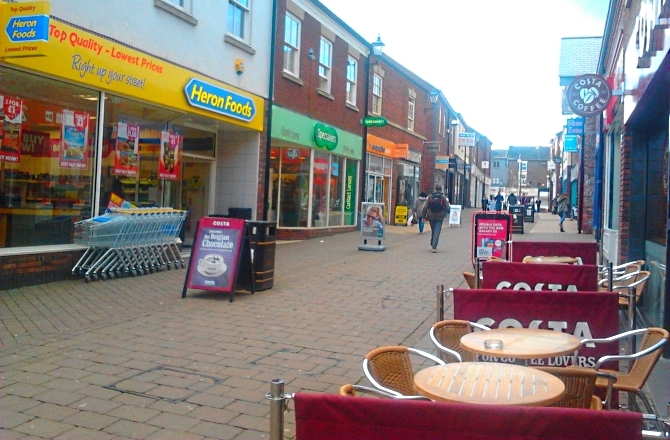The warm spring weather appears to have encouraged many consumers to hit the high street as personal finances improve. Yet April did not just see retailers benefit on an individual level, as the retail industry as a whole enjoyed the strongest monthly leap in sales seen in a decade.

During the past month, sales climbed by an astonishing 6.9 per cent when compared to the previous year, according to data released this week by the Office for National Statistics (ONS). Furthermore, retail sales grew by 1.3 per cent from results in March, resoundingly beating analysts’ predictions of a 0.5 per cent increase.
Fortunately, these large-scale increases were largely due to a boom in food sales triggered by the late timing of the Easter holidays, easing the pressure somewhat on the UK’s struggling grocers. Year on year, food sales grew by 6.3 per cent and were up 3.6 per cent on March’s more disappointing figure.
UK head of retail at Deloitte, Ian Geddes, believes that grocery retailers are finally beginning to see the results of initiatives designed to encourage a higher level of consumer spending.
He says; “It is encouraging to finally see some strong figures in the food sector, as this remains a challenging market for the large grocers who are vigorously responding to consumers’ changing retail habits and are currently implementing significant structural reorganisation.
“This is clearly a long race and the large grocers are repositioning themselves to win over customers in the new, more complex era of multichannel retailing.”
Surprisingly, non-food sales – which have for some time been the key driving force behind growth in the retail industry – did not fare so well in comparison to March. They fell by 0.4 per cent during the month, although did manage an impressive 6.5 per cent growth rate when compared to results from last April.
Although these figures point to an upturn in the fortunes of the high street, where vacancy rates remain worryingly high in many areas, there may be trouble ahead. This comes in the form of inflation, which has risen to 1.8 per cent from a four year low of 1.6 per cent during March.
As average wage growth figures show that earnings increased by an average of only 1.7 per cent in the year to March, inflation is once more outstripping real earnings and this may cause many consumers to reconsider their attitudes towards relaxed spending as a result.
Yet chief UK and European economist at HIS Global Insight, Howard Archer, does not believe that consumers need be overly concerned by the inflation versus wages situation.
He says; “The fundamentals for consumers are currently improving overall, and they should continue to do so over the coming months as employment rises further and earnings growth likely trends higher than inflation, thereby lifting purchasing power.”
Do you think consumers will begin to rein in spending if inflation grows further in comparison to wage growth, or is the air of optimism regarding personal finances here to stay?
Previous Post
Coral becomes latest Bookmaker to warn of Store Closures